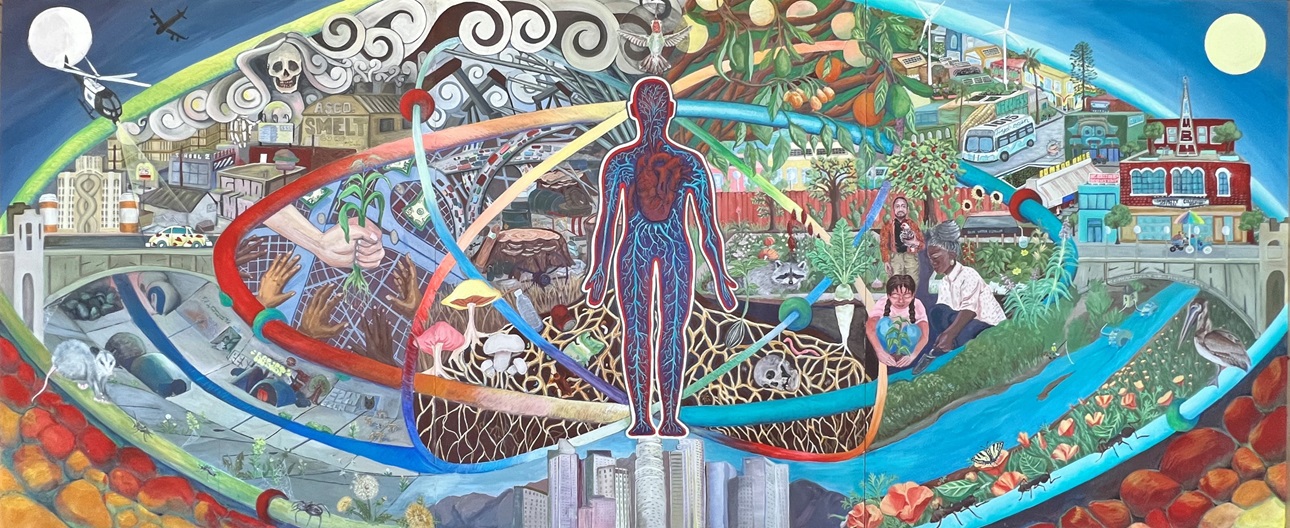- English
- 中文 (Chinese)
- Français (French)
- Deutsch (German)
- 日本語 (Japanese)
- Español (Spanish)
Building Resilience Ecosystems

A Model for Delivering Climate Resilience to All Communities
The purpose of this Technical Assistance Panel (TAP) is to assess how to best deliver resilience through real estate development and associated activities across communities, building upon the example of the Boyle Heights Arts Conservatory (BHAC), the first of its kind in Los Angeles. This TAP report creates a plan and recommendations to catalyze and assist with the development of community-led resilience hubs and networks, making climate resilience accessible to all residents in Los Angeles and beyond.
The need for additional and more robust community support and safety is critical due to the stressors and shocks instigated and amplified by climate change, such as extreme heat and flooding, and the pressing need for transformation in communities where environmental burdens such as air pollution and contamination are magnified due to historic injustices. The creation of resilience hubs and additional resilience resources will give residents places to organize and craft their ongoing response to localized issues related to climate change. A network of resilience hubs and resources will increase the capacity of communities to not only survive and recover reliably and equitably from disasters, but also to thrive.
Resumen del informe: The purpose of this Technical Assistance Panel (TAP) is to assess how to best deliver resilience through real estate development and associated activities across communities, building upon the example of the Boyle Heights Arts Conservatory (BHAC), the first of its kind in Los Angeles. This TAP report creates a plan and recommendations to catalyze and assist with the development of community-led resilience hubs and networks, making climate resilience accessible to all residents in Los Angeles and beyond.
The need for additional and more robust community support and safety is critical due to the stressors and shocks instigated and amplified by climate change, such as extreme heat and flooding, and the pressing need for transformation in communities where environmental burdens such as air pollution and contamination are magnified due to historic injustices. The creation of resilience hubs and additional resilience resources will give residents places to organize and craft their ongoing response to localized issues related to climate change. A network of resilience hubs and resources will increase the capacity of communities to not only survive and recover reliably and equitably from disasters, but also to thrive.


